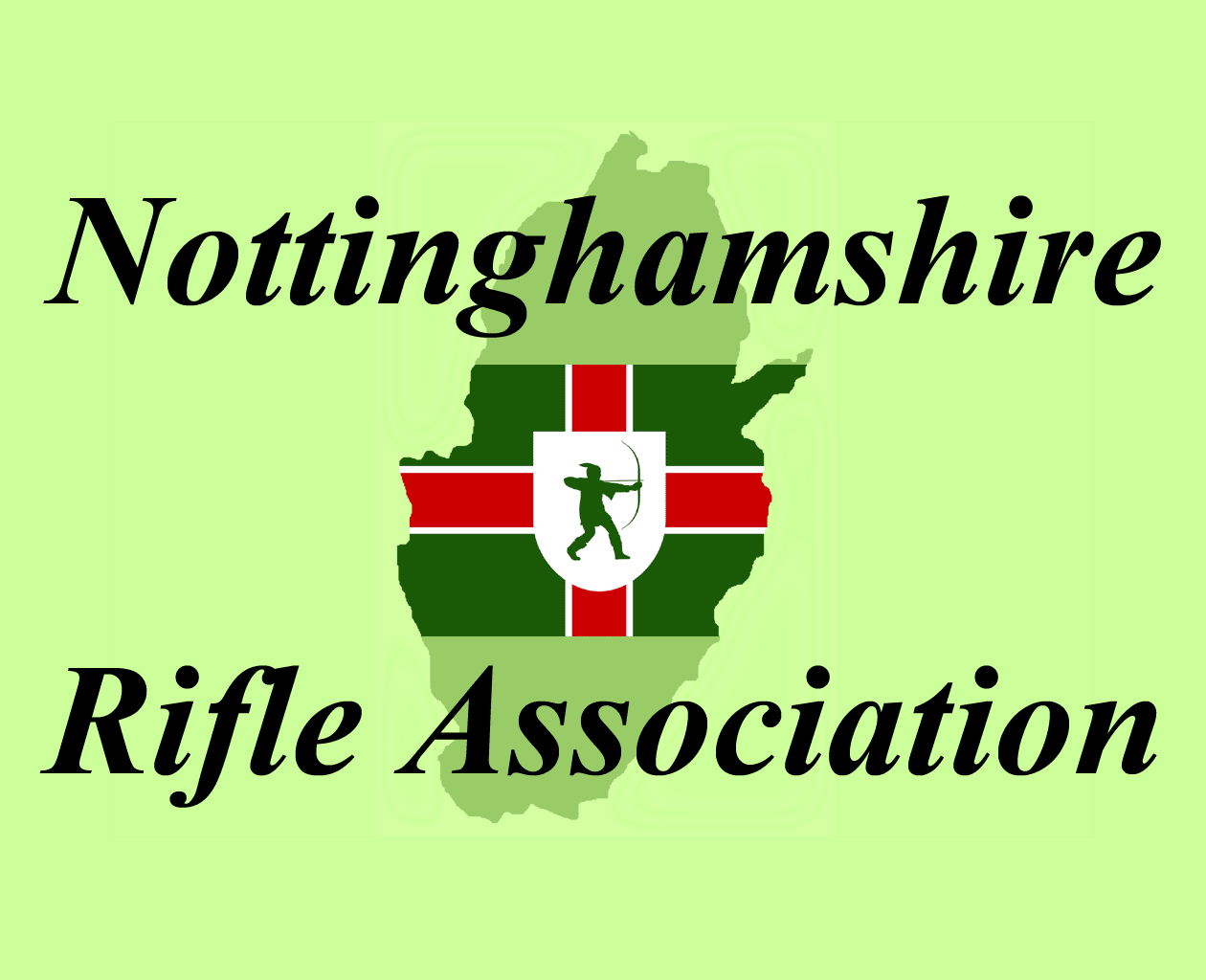The Closure of Nottingham Butts
In early August 1890 the Nottingham Butts were closed by order of the War Office on safety grounds. Whilst the order appears to have come without prior warning and reported with no hint of any consultation with the Robin Hood Rifles command, it must have been on the cards for some time.
The range was sited alongside a public road running parallel for its entire length of 1000 yards on the right hand side and with allotment gardens to the left hand side. Beyond the butts the ground rose towards other settlements. It is probable that firing at 1000 yards was from a raised firing point on probably the opposite side of the road from the butts but certainly alongside the road.
See our report of 21st October 1864 for more on the 1000 yard firing point, and our report on the location of the range for its layout and surroundings.
Another factor leading to its closure must have been the increasing power and range of the military rifles in use as this had also been a consideration leading to the move of the National Rifle Association from Wimbledon Common to Bisley Common in this same year.
The edict of the War Office, issued on Monday, peremptorily closing the Robin Hood Rifle range, came like a "bolt from the blue", and has brought Colonel Seely and the regiment face to face with a problem which has long threatened to trouble them. The situation is a very awkward one, in view of the forward state of the Duke of St. Albans cup competition and the now imminent battalion prize shoot, but the Secretary of State for War is firm, and in all probability not another shot will be fired down the old range. For a long time past complaints have been frequent from inhabitants in the locality of stray bullets striking the walls of their dwellings, furnishing quite unnecessary ventilation to their conservatories, and causing alarm generally. No doubt representations have been made to the War Office, where the authorities have not been content to wait until someone has been killed, but have sounded "cease firing" in a manner which cannot be misunderstood.
The Robin Hoods do not hold the range on lease from the Corporation, but are merely tenants at will. Had they been able to secure a lease probably the Shooting Committee of the regiment would have felt justified in spending a considerable sum of money in building a protecting wall in rear of the butt. The Corporation, however, declined to enter into anything like a permanent arrangement, and there can be no doubt that for years past the range has been unsafe. Volunteers coming up from the 200 yards range when firing has been in progress at the 500 yards point have run some risk, and they have been urgently requested to return to the lodge by the Coppice-road. In their secret hearts it is likely enough that the shooting men of the regiment are delighted with the application of the closure by the War Office, as on a new range they are sure to get better opportunities at practising under conditions more akin to those which they obtain at BisIey. Long range shooting has practically been restricted to three days, and yet Nottingham people wonder how it is that Robin Hoods fail in the latter stages of the Queen's.
As to the probable site of the new range, which has become an absolute necessity, many suggestions have been thrown out. Possibly Edwalton or the immediate neighbourhood will furnish the ground. There is a fine level stretch of country, almost a natural butt, and the place is not inconveniently far away from Nottingham. A twopenny bus to West Bridgford runs within half a mile of the spot, and there are no houses in the locality, nor likely to be for some time to come. Of course nothing has yet been decided, nor is likely to be at present. Meanwhile negotiations are in progress to secure for the Robin Hoods the use of the Long Eaton range at Trent for the purposes of the battalion prize competition which had been fixed to take place on Wednesday next, but surely the fine range which Colonel Buchanan's regiment owns at Derby would afford a more suitable venue. As there are only two targets at Long Eaton it would be found necessary to run the competition over two or three days, and the firing point at 600 yards is not of the best. Arrangements have yet to be made for the unfinished ties in the Duke's cup competition, and for the registering of those men who have not got through.
About a week after the report above, further details of the shooting matches effected by the closure appeared in the Nottingham Evening Post. There is mention of other ranges at Radcliffe-on-Trent and Derby being used by the Nottingham volunteers.
Almost as a footnote to the report is a telling glimpse into the victorian class system.
The formation of the autumn squad of recruits for the Robin Hoods is eloquent of the end of the volunteer season locally. A very fair class of recruits has come forward this year, and there is no fear as to the strength of the regiment being maintained. The abrupt closing of the range on Coppice-road is very awkward, in view of the interesting competitions which had been arranged, but it is understood that the District Inspector of Ranges was not willing to take the responsibility of keeping the range open any longer, and the Robin Hoods will have to do their shooting elsewhere.
The annual battalion prize competition ought to have been brought off last Wednesday, but this, and matches in the Duke of St. Albans Challenge Cup competition, have been postponed. One company proposes for the purpose of its own competitions to ask for the use of the Radcliffe-on-Trent range, while the battalion shoot will, in all probability be brought off at Derby, if suitable arrangements can be made with Colonel Buchanan and also the railway company.
The Volunteer Service Gazette, referring to the new regulations which permit of volunteer officers being presented at Court in the same way that officers of militia and the regular army have long been, says:– The whole of the volunteer force owes a great debt of gratitude to Colonel Eyre for the pains he has taken so get a restriction removed by which he was in no way personally affected, but which he rightly felt, as we have always felt it, to be in the highest degree invidious. quite useless, and calculated to hinder the supply of fitting candidates for volunteer commissions.
Transcripts from Nottingham Evening Post 14/08/1890 and 22/08/1890
British Library Newspaper Archive

